- Home
- Alex Irvine
Phase One: Iron Man Page 2
Phase One: Iron Man Read online
Page 2
Two scruffy guards, armed with machine guns, stood nearby. On the other side of the cave, a video camera focused on a tall man who seemed to be the leader of these people. Tony realized the men must be insurgents—the rebel fighters who had attacked his convoy. The tall man read a prepared statement for the camera in a language Tony didn’t understand, probably Arabic or Pashto. Next to him stood a line of armed, hooded men holding up a banner showing ten interlocking rings—a sign Tony had seen before on the news. It was the symbol of a well-known insurgent faction.
The leader finished reading and thrust a huge knife into the air. The others cried their approval. The cameraman turned the camera toward Tony. The leader stepped forward, his knife gleaming in the semidarkness. Thankfully, Tony passed out.
When Tony opened his eyes again, he was in some kind of emergency room—though it didn’t look like a very good one. He was strapped to a bed and connected to numerous wires and tubes. Everything around him, even the medical equipment, looked dirty and ill-repaired. An aging man in a dirty doctor’s smock stood by a nearby sink, shaving. He didn’t notice that Tony had woken up.
Feeling thirsty, Tony reached for a pitcher of water on a nearby table, but the tubes and wires connecting him to the medical machines wouldn’t let him stretch that far. He grabbed hold of the wires and pulled, trying to rip them out. Somehow, he didn’t have the strength. His chest ached terribly.
The doctor noticed his efforts. “I wouldn’t do that if I were you,” he said in slightly accented English. His dark eyes strayed meaningfully down the wires to a nearby car battery. A chill rushed down Tony’s spine. Who were these people? What had they done to him?
He put his hand on his bandaged chest and remembered he was in the hands of the enemy. He’d been taken prisoner—and they’d done something to his heart.
CHAPTER 4
Tony faded in and out of consciousness for a long time. When he could finally focus again, he was in a cave. The doctor stood a dozen yards away, stirring a bubbling pot over a small gas-fired furnace. It looked like he was working on an experiment. Flickering fluorescent lights dangled overhead. A closed metal door seemed to be the room’s sole exit. Dirt, grease, and blood stained the doctor’s yellowed smock. He had a tanned, wrinkled face, gray hair, and thick glasses. He glanced over as Tony stirred.
Tony looked at his chest and gasped. Some kind of bulky metal machine protruded from beneath his fresh bandages.
“What have you done to me?” he asked.
The doctor stopped stirring the pot. “My name is Yinsen, and what I did is to save your life. I removed all the shrapnel I could, but there’s a lot left and it’s headed into your atrial septum.” He picked up a jar from a nearby shelf and tossed it to Tony. “Here, want to see? I have a souvenir.”
Tony, who was no longer strapped down, caught the jar and winced. It was full of shrapnel. His chest felt very, very strange.
“What is this?” he asked, looking down at his chest.
“That is an electromagnet, hooked up to a car battery, and it’s keeping the shrapnel from entering your heart.” Tony looked at his wound and suddenly felt sick. He looked away from it at the nearby car battery. Then he noticed a security camera perched high on the cave wall.
Yinsen nodded. “That’s right. Smile.”
Somehow, Tony didn’t feel like smiling.
“We’ve met once before,” Yinsen continued, stirring the pot, “at a technical conference in Bern, Switzerland.”
“I don’t remember,” Tony said.
“You wouldn’t,” Yinsen replied. “If I’d been that drunk, I wouldn’t have been able to stand.”
Tony brushed this off. “Where are we?” he asked. Before Yinsen could answer, a metal slat in the middle of the door slid back, revealing two menacing eyes.
Yinsen stopped stirring. “Stand up!” he hissed at Tony. “Do as I do. Now!”
Tony tried to stand, but couldn’t manage it. Yinsen dropped his spoon and helped Tony up. Before Tony could ask what was happening, the door swung open and a tall, powerful-looking man entered, flanked by two armed henchmen.
The man began speaking in Arabic and Yinsen translated. “Abu Bakar says, ‘Welcome, Tony Stark, the greatest mass murderer in the history of America. It is a great honor.’”
Abu Bakar held out a surveillance photo showing an image of the Jericho missile test. He continued talking.
“You will build for him the Jericho missile you were demonstrating,” Yinsen translated.
Tony took a deep breath. His chest ached dully. “I… refuse,” he said.
Yinsen leaped forward and slapped Tony across the face. Yinsen’s eyes burned with anger. “You refuse?” he raged. “This is the great Abu Bakar! You are alive only because of his generosity. You are nothing. Nothing! He offers you his hospitality, and you answer with insolence? Obey him or you will die!”
Tony’s cheek stung. He took a step back.
Abu Bakar chuckled. Then, with a nod of satisfaction to Yinsen, he turned and left. The guards went with him. As the door slammed behind them, Yinsen let out a sigh of relief.
“Perfect,” he said. “You did very well, Stark. Good.”
Tony sat back down on his cot, confused.
Yinsen smiled. “I think they’re starting to trust me.” He returned to his kettle. Tony realized suddenly that Yinsen wasn’t working on an experiment—he was cooking.
Tony’s stomach growled. “What’s next?” he asked.
Yinsen shrugged. “We’ve reached the end of my plan,” he said. “From now on, we improvise.”
The next day, guards came for both of them and led them, hooded, through the cave passages. Tony walked blindly for long minutes until one of Abu Bakar’s henchmen yanked the smelly hood off of his head. Blinking against the sudden light, Tony found himself in a valley surrounded by tall mountains. The day’s brightness stung his eyes, and it took him a moment to process all he was seeing.
Skids piled with weapons surrounded him. All of the munitions—some dating back twenty years—bore the Stark Industries logo. Abu Bakar said something.
“He wants to know what you think,” Yinsen said.
Tony shook his head in disbelief. “I think you got a lot of my weapons.”
Abu Bakar spoke again.
“As you can see,” Yinsen translated, “Abu Bakar has everything you will need to build the Jericho. He wants you to make a list of materials. He says for you to start working immediately.”
Tony looked around the valley, his eyes settling on a man nearby. He recognized the man from military briefings; he was a warlord called Raza—a leader of the Ten Rings rebels.
“When you are done,” Yinsen said, still translating, “he will set you free.”
“No, he won’t,” Tony said, keeping up a smile for appearances.
“No,” Yinsen agreed quietly. “He won’t.”
General Gabriel walked alongside Rhodey as he picked through the charred wreckage from the ambush. “What a mess,” the general said, shaking his head.
“Something’s not right,” Rhodey said.
“It looks like a standard hit-and-run to me,” the general replied.
“Sir, I’m telling you, this was a snatch-and-grab,” Rhodey insisted. “As soon as they got what they wanted, they melted away—and what they wanted was Tony Stark.”
“Intel’s on it,” Gabriel said. “If Stark is out there, we’ll get him back.”
Rhodey took a deep breath. “General, with your permission, I’d like to stay and head up the search.”
“Negative,” Gabriel replied. “Right now, the best way for you to serve your country is to get back to the United States and handle the firestorm of publicity.”
“Tony Stark is the Department of Defense’s number one intellectual asset,” Rhodey countered. “I can be of more value in the field, getting him back.”
“Duly noted,” the general replied. “But we need you back home.” He turned and walked toward his staff car. “Lieutenant
Colonel,” he called back, “it is not lost on me that you and Stark are lifelong friends, but—in this instance—there’s nothing I can do.”
A few days later, Tony, wrapped in an army surplus blanket, sat next to Yinsen’s portable furnace. Yinsen was cooking again. Tony wondered if he ever used the furnace for anything else.
“I’m sure your people are looking for you, Stark,” Yinsen said, “but they will never find you in these mountains. What you just saw is your legacy—your life’s work in the hands of these murderers.”
Tony said nothing.
“Is that how you want to go out?” Yinsen asked. “Sitting silently in a cave? Is this the last act of defiance of the great Tony Stark? Or are you going to try to do something about it?”
Tony rubbed his head. “Why should I do anything?” he asked. “They’re either going to kill me now, or the shrapnel will kill me in a week.”
Yinsen looked into his eyes. “Then this is a very important week for you.”
CHAPTER 5
Abu Bakar turned on the lab’s new portable generator.
“Okay,” Tony said, trying to think of a way out of the mess he’d gotten himself into, “here’s what I need to build your weapons…”
Yinsen cleared his throat and began translating Tony’s list for Abu Bakar.
“S-category missiles,” Tony said. “Lot 7043. The S-30 explosive tritonal, and a dozen of the S-76. Mortars: M-Category, numbers one, four, eight, twenty, and sixty. M-229s—I need eleven of these. Mines: the pre-nineties AP fours and AP sixteens.”
Abu Bakar relayed the orders and his men hurried off to fill Tony’s requests.
Tony made an arc with his hands. “I need this area free of clutter,” he said, “with good light. I want the equipment at twelve o’clock to the door, to avoid logjams. I need welding gear—acetylene or propane—helmets, soldering setup with goggles, and smelting cups. Two full sets of precision tools…”
Abu Bakar seemed annoyed by the long list.
“Finally,” Tony said, “I want three pairs of white tube socks, a toothbrush, protein powder, spices, sugar, five pounds of tea, playing cards, and… a washing machine and dryer.”
Abu Bakar pushed his face right up to Tony’s and spoke in Arabic.
“A washing machine?” Yinsen translated. “Do you think he’s a fool?”
Tony stared into the insurgent’s eyes. “I must have everything,” he said. “Great man will make a big boom for the powerful Abu Bakar. Big boom will kill Abu Bakar’s enemies.”
Yinsen translated and, slowly, Abu Bakar nodded and smiled.
The next day, Tony and Yinsen began salvaging the pieces they needed from the aging weapons Abu Bakar’s men had brought.
“You know that Abu Bakar removed all the explosives from these before he gave them to us,” Yinsen whispered.
“I know,” Tony replied. “They’re crazy, not stupid.” He carefully removed a tiny strip of palladium metal from one of the missiles. “Okay, we don’t need this,” he said, gesturing to the rest of the missile’s guidance machinery.
“What is that?” Yinsen asked.
“That’s palladium. Oh point one five grams. We need at least one point six, so why don’t you break down the other eleven?”
When they were all together, Tony and Yinsen put the palladium strips in a melting bowl. “Good,” Tony said. “Now heat the palladium to 1,825 degrees Kelvin.” That was when the palladium would melt.
As Yinsen heated the metal, Tony wrapped a copper coil around a glass ring he’d removed from another missile. They had a lot to do, and not much time.
“Careful…” Tony said as Yinsen brought him the melted palladium.
“Relax,” Yinsen replied. “I have steady hands. It’s why you’re still alive.”
They poured the palladium into the ring and waited until it cooled. Then Tony finished connecting the last pieces of the device and threw the lab generator switch. The lights in the cave dimmed and the palm-sized device glowed atop the workbench.
“That doesn’t look like a Jericho missile,” Yinsen observed.
“That’s because it’s a miniaturized Arc Reactor,” Tony said. “I got a big one powering my factory at home. It should keep the shrapnel out of my heart.” He had used a version of what he called Repulsor Technology to hold the shrapnel in place.
Yinsen nodded, understanding. “So you won’t need the car battery anymore.”
“Yeah,” Tony said. “And this power source will last a bit longer than a week.”
Yinsen leaned close, studying the device. “It’s pretty small,” he said. “What can it generate?”
“Three gigajoules, give or take.”
Yinsen’s mouth dropped open. “That could power your chest plate for fifty lifetimes!”
A sly grin crept over Tony’s face. “Or something really big for fifteen minutes.” He held Yinsen’s eyes for a moment and then said, “Let’s install it in my chest.”
Yinsen glanced at the security monitor that was tucked into a corner of the cave ceiling. “They’ll be watching.”
“Then I’ll be counting on those famously steady hands to work quickly… and in secret,” Tony said.
Over the next few weeks, they fell into a routine. Work, sleep, dodge the newest threats from the insurgents. Repeat. The laboratory was strewn with parts that might, for all his captors knew, be assembled into a high-tech missile. After a long day spent cutting, welding, and shaping salvaged sheet metal, Tony looked over at Yinsen. He seemed to be assembling some kind of game.
“What are you doing?” Tony asked.
Yinsen looked up. “Tell me what you’re doing, and I’ll tell you what I’m doing.”
“It looks like you’re making a backgammon board.”
“I’m impressed,” Yinsen said. “How about we play, and if I win, you tell me what you’re really making.”
“Two things,” Tony said. “One, I don’t know what you’re talking about. Two, I was the backgammon champ at MIT four years running.”
“Interesting,” Yinsen replied. “I was the champion at Cambridge—the one in England.”
Tony leaned away from his work and rolled his eyes. “Please don’t use the words ‘interesting’ and ‘Cambridge’ in the same sentence. Is Cambridge still a school?”
“It’s a university. You probably haven’t heard about it since Americans can’t get in.”
Tony shot him a look. “Unless they’re teaching.”
Just at that moment, the door to the lab flew open and Abu Bakar stormed in, followed by four of Raza’s guards. The guards took up positions on either side of the room and pointed their guns at Tony and Yinsen. After the room was secure, Raza entered. Everything about him screamed “danger.” He seemed unpredictable and deadly.
“Relax,” Raza told Tony. He walked to the workbench and looked at the missile schematics Tony had drawn on salvaged pieces of paper.
“The bow and arrow was once the pinnacle of weapons technology,” Raza mused. “It allowed Genghis Khan to rule from the Pacific to the Ukraine.”
The warlord fixed his cold eyes upon Tony. “Today, whoever has the latest Stark weapons rules these lands. Soon, it will be my turn.” Seeming to sense something was amiss, he turned to Yinsen and spoke in Urdu.
Yinsen shook his head and replied, adding in English, “We’re working. The missile is very complex. That’s why we’re taking so long. We’re working very hard. Ask Stark if you don’t believe me.”
Raza glanced at Stark. Tony remained stoic.
At a nod from the warlord, the guards seized Yinsen and forced him to his knees. Raza stepped forward and brought a piece of red-hot metal from the furnace, holding it closer to Yinsen’s face as he kept on asking questions in Urdu, or whatever language he spoke.
Tony started to panic. He needed Yinsen, and he couldn’t just stand there and watch someone be tortured for protecting him. “What do you want?” he shouted at Raza. “A delivery date?”
He po
inted at Yinsen. “I need him! Good assistant!”
Raza glared at him for a long moment. Then he flung the glowing metal rod away. The guards let go of Yinsen, and he collapsed to the floor.
Raza scowled at Yinsen and Tony. “You have until tomorrow to assemble my missile,” he said. He turned and left the room. The others followed, locking the door as they left. Tony helped Yinsen to his feet.
Yinsen recovered for a few minutes and then said, “Now are you going to tell me what you’re really building?”
Tony looked at Yinsen. Even after all they’d been through together, could he trust him? Tony decided he could. Being careful to avoid the gaze of the surveillance camera, he showed Yinsen the real plans for the project.
Yinsen’s weathered face broke into a smile.
Their backgammon game would have to wait.
Over the following twenty-four hours, the two of them worked feverishly: soldering circuits, connecting electronics, hammering metal—always carefully concealing their purpose from the watchful eyes of the warlord and his guards.
“My people have a tale about a prince,” Yinsen said as he worked the salvaged metal. “The king hated the prince, so he banished him to the underworld and jailed him there.”
Sweat poured from Tony’s body as he beat the metal into shape. “Tell me,” he said.
“The king made the prince work the iron pits. Year after year, the prince mined the heavy ore, becoming so strong he could crush pieces of it together in his bare hands.”
Tony wiped the soot from his face.
“Too late the king realized his mistake,” Yinsen continued. “He took his finest sword and went to kill the prince. But when he struck, the sword broke in half. The prince himself had become as strong as iron.”
Tony lifted a glowing iron mask from the furnace. The mask was crude, but it would definitely suit his purpose.
“What next, young prince?” Yinsen asked.
CHAPTER 6

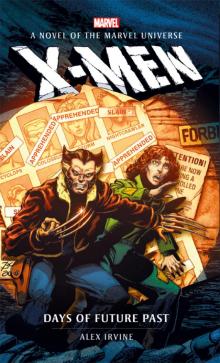 Marvel Novels--X-Men
Marvel Novels--X-Men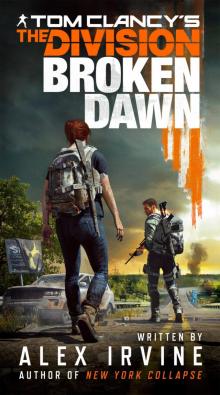 Tom Clancy's the Division
Tom Clancy's the Division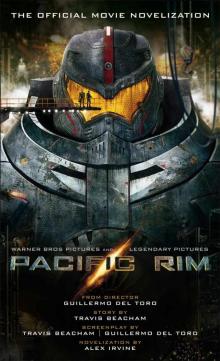 Pacific Rim: The Official Movie Novelization
Pacific Rim: The Official Movie Novelization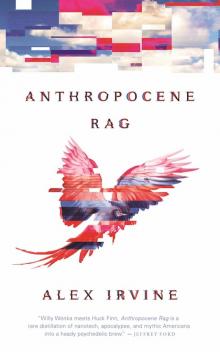 Anthropocene Rag
Anthropocene Rag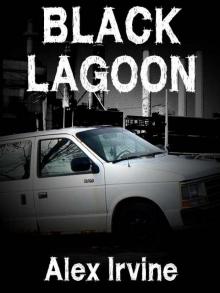 Black Lagoon
Black Lagoon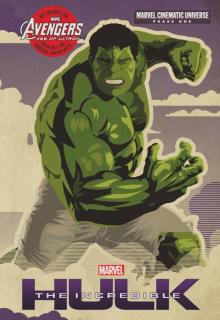 Phase One: The Incredible Hulk
Phase One: The Incredible Hulk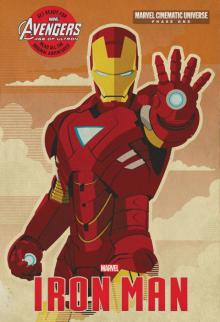 Phase One: Iron Man
Phase One: Iron Man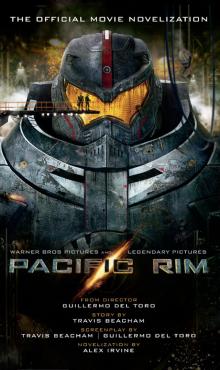 Pacific Rim
Pacific Rim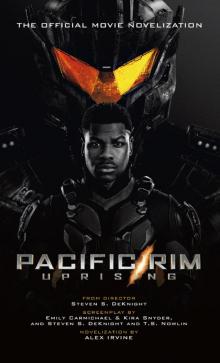 Pacific Rim Uprising--Official Movie Novelization
Pacific Rim Uprising--Official Movie Novelization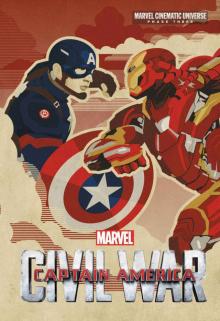 Phase Three: Marvel's Captain America: Civil War
Phase Three: Marvel's Captain America: Civil War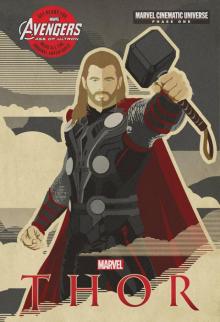 Phase One: Thor
Phase One: Thor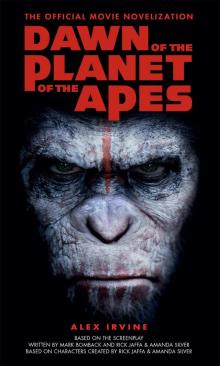 Dawn of the Planet of the Apes: The Official Movie Novelization
Dawn of the Planet of the Apes: The Official Movie Novelization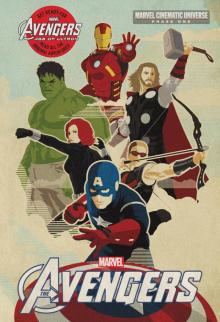 Phase One: Marvel's The Avengers
Phase One: Marvel's The Avengers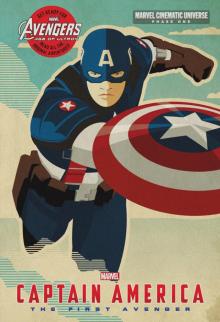 Phase One: Captain America
Phase One: Captain America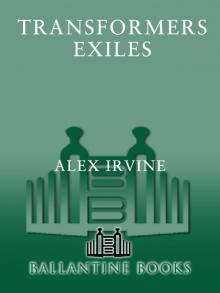 Exiles
Exiles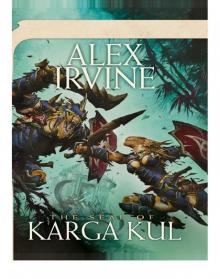 The Seal of Karga Kul: A Dungeons & Dragons Novel
The Seal of Karga Kul: A Dungeons & Dragons Novel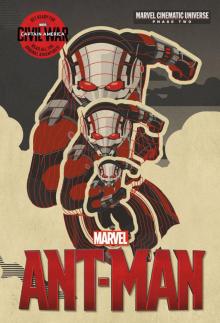 Marvel's Ant-Man - Phase Two
Marvel's Ant-Man - Phase Two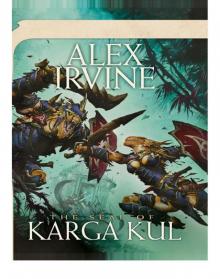 The seal of Karga Kul (dungeons and dragons)
The seal of Karga Kul (dungeons and dragons)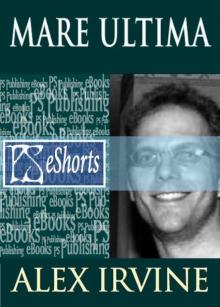 Mare Ultima
Mare Ultima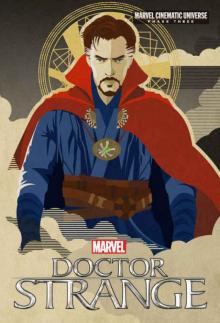 Phase Three: MARVEL's Doctor Strange
Phase Three: MARVEL's Doctor Strange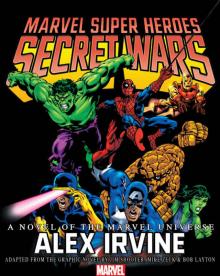 MARVEL SUPER HEROES SECRET WARS
MARVEL SUPER HEROES SECRET WARS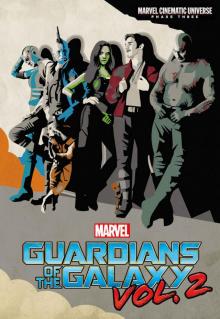 Phase Three: MARVEL's Guardians of the Galaxy Vol. 2
Phase Three: MARVEL's Guardians of the Galaxy Vol. 2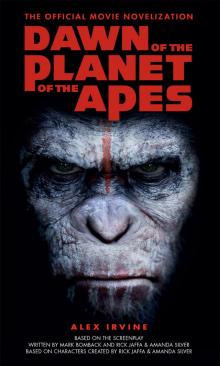 Dawn of the Planet of the Apes
Dawn of the Planet of the Apes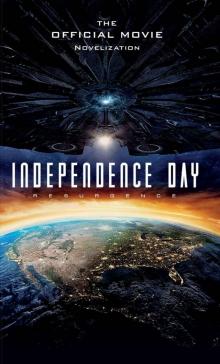 Independence Day: Resurgence: The Official Movie Novelization
Independence Day: Resurgence: The Official Movie Novelization